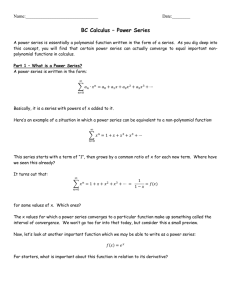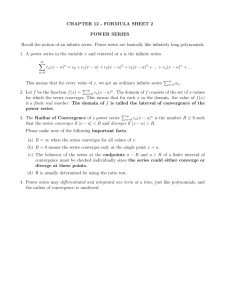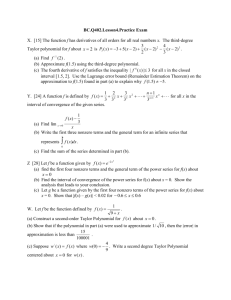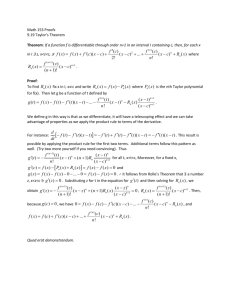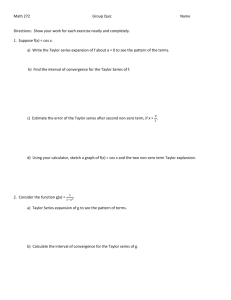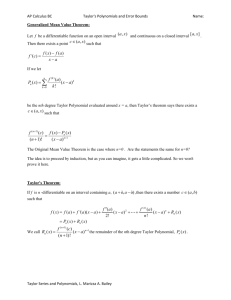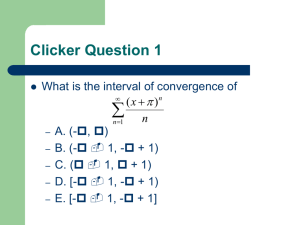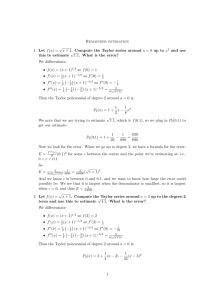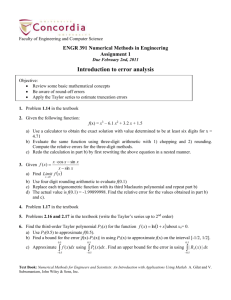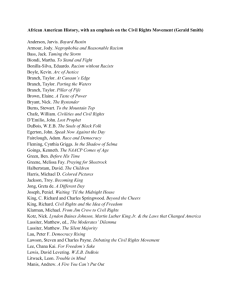171Section11_7
advertisement
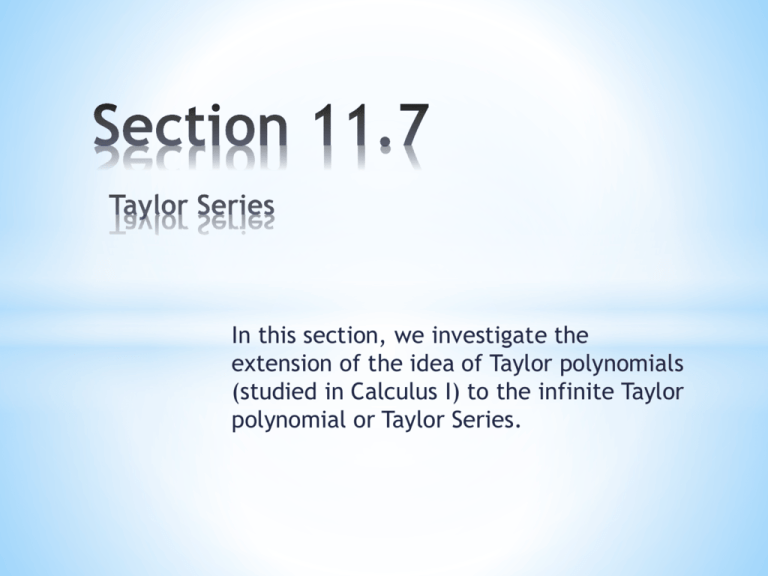
In this section, we investigate the extension of the idea of Taylor polynomials (studied in Calculus I) to the infinite Taylor polynomial or Taylor Series. How can we take any differentiable function, f, and find a power series that converges to f at a base point x = x0 (and hopefully on an interval centered at x0)? How can we take any differentiable function, f, and find a power series that converges to f at a base point x = x0 (and hopefully on an interval centered at x0)? We constructed Taylor polynomials in Calculus I that essentially did this, but they were polynomials of finite degree. How can we take any differentiable function, f, and find a power series that converges to f at a base point x = x0 (and hopefully on an interval centered at x0)? We constructed Taylor polynomials in Calculus I that essentially did this, but they were polynomials of finite degree. Extend this approach to get a polynomial of infinite degree – the Taylor series of f. Let f be any function with infinitely many derivatives at x0. The for f, centered at x = x0, is the series: ¥ T ( x ) = å ak ( x - x0 ) k k=0 where ak = If x0 = 0, it is called the f( k) ( x0 ) k! . Let f be any function with infinitely many derivatives at x0. The nth partial sum of the Taylor Series for f is the nth order Taylor polynomial that we studied in Calculus I. n Pn ( x ) = å ak ( x - x0 ) k k=0 where ak = f( k) ( x0 ) k! So, the idea is to mimic the process used to build a Taylor polynomial, and hope to discern a pattern to the coefficients so that we can give a general formula for the entire series. Construct the Taylor Series for f ( x ) = sin ( x ) centered at x = 0. Where does this series converge? Construct the Taylor Series for f ( x ) = e2 x centered at x = 0. Where does this series converge? Construct the Taylor Series for f ( x ) = ln x centered at x = 1. Where does this series converge? Suppose f is repeatedly differentiable on an interval I containing x0 and that Pn ( x ) = a0 + a1 ( x - x0 ) + a2 ( x - x0 ) +... + an ( x - x0 ) 2 is the nth order Taylor polynomial of f. f ( x ) - Pn ( x ) £ K n+1 n+1 x - x0 "x Î I ( n +1)! ( n+1) where f ( x ) £ K n+1 n Find the third order Maclaurin polynomial for the function f ( x ) = 1+ x . Use it to estimate 2 . What is the error bound of this estimate? Use the above to construct an interval guaranteed to contain the exact value of 2 .
